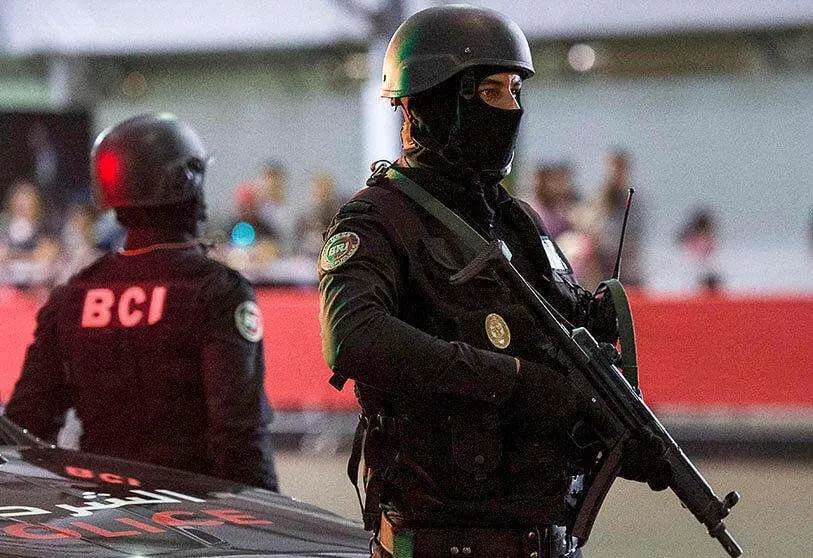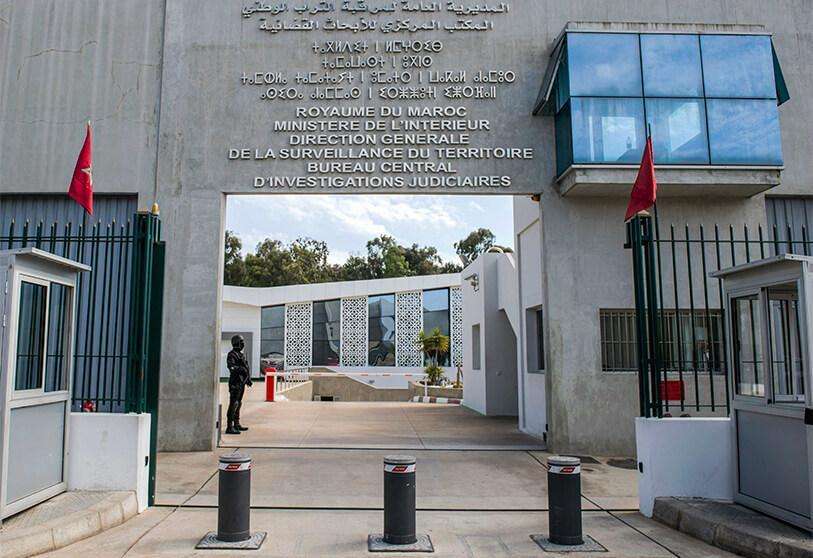La DGST marroquí evita un ataque terrorista en Francia

The Directorate-General for Territorial Surveillance (DGST) transmitted, on 1 April 2021, to the French external and internal intelligence services (DGSE-DGSI), specific information concerning a French citizen of Moroccan origin, who was preparing an imminent terrorist operation against several local churches in France. This operation is part of the follow-up to efforts to neutralise the dangers of the terrorist threat and dismantle extremist organisations aimed at seriously undermining public order, security and stability in the Kingdom," the Central Office stated in a press release.
On the basis of this information, the competent French authorities proceeded on 3 and 4 April to the arrest and seizure of persons who could neutralise the risks of this terrorist project, according to the spokesman for the Directorate-General for National Security (DGSN) and the DGST.
Indeed, following the arrest last weekend in the French town of Bézier of five women planning to carry out attacks in France, French investigators revealed that these arrests had been made thanks to information provided by Moroccan intelligence services, according to Assabah.
For its part, the daily Al Ahdath Al Maghribia, under the headline "Moroccan security services save France from a bloodbath", reports that, based on information provided by the Moroccan secret services, a Frenchwoman belonging to the Daesh terrorist group was preparing an imminent attack, the scene of which would be one or more local churches.
The information provided by the DGST to the relevant French security services included personal details of the main suspect and her electronic identity details, as well as the terrorist project she was preparing to carry out in coordination with elements of the Daesh terrorist organisation, the same source added.

The DGST also provided the French authorities with information on the level of extremism reached by the woman, including her intention to commit acts of terrorism, based on videos and digital content disseminated by the Daesh terrorist organisation, which the suspect regularly watched.
This information provided by the Moroccan services was particularly useful, as it almost indicated the time chosen by the terrorists to take action, which gave the French services time to carry out their operation to arrest the suspected terrorists under the name of "skirt", one of whom has just turned 18, adds Al Ahdath.
The sharing of this information with the French services is part of Morocco's commitment to international cooperation mechanisms in the fight against terrorist organisations, the consecration of peace and stability in the world, and in the wake of the strengthening of cooperation between the DGST and French intelligence services in the fight against terrorism and the resurgence of threats of violent extremism that threaten the security of the citizens of both countries.
Since the 2003 terrorist attacks in Casablanca, Morocco has joined the international fight against terrorism and radicalisation. To this end, a number of policies and reforms have been put in place in the areas of security, religious practice and the socio-economic situation.
According to the Institute For Economics and Peace's Global Terrorism Index 2018, Morocco ranks 132nd in terms of the impact of terrorism. A position rated by the same index as very low risk. The same institute ranks Morocco in its Global Peace 2019 report at 90th place, which is itself a favourable index.
However, what worries Moroccan officials and the international community is the high number of Moroccan fighters in the ranks of terrorist groups such as Daesh and the circulation of Moroccan names in terrorist attacks around the world.
In this regard, according to the latest information revealed by the Central Bureau of Judicial Investigations (BCIJ), between 2002 and 2019, Morocco has dismantled 199 terrorist cells linked mainly to Daesh.
The number of active cells has been decreasing. In 2015 Morocco had dismantled 21 cells, 19 in 2016, 9 in 2017, 8 cells in 2018 and 8 at the beginning of 2019. These operations led to the arrest of 902 people, including 14 women and 29 minors.








